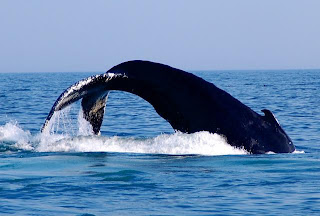Rev Han: This is more a comment on some of your comments during the "Jesus Camp" Sunday School, than
on the sermons. Although I can see how the text, "See to it that no one takes you captive through philosophy and empty deceit, according to human tradition, according to the elemental spirits of the universe, and not according to Christ," might be applicable.
Two weeks ago you mentioned, as part of a discussion of the theological positions of the subjects of the documentary, that you thought of yourself as an "evangelical" (as the people in the documentary presumably think of themselves), and that most of the adults in the class probably thought of themselves as evangelicals also. Then last Sunday you said (in qualification of the previous Sunday's statement, perhaps?) that the term was not very well defined (at least I think this is what you said; I'm stuggling to remember the precise words).
I also think that definition is a real problem. If "evangelical" is not well defined, it is because recent (decade scale) developments have loosened what were the earlier boundaries of the generally accepted definition. Whereas I once readily admitted to being an evangelical myself, I find it very difficult to do so these days. For two reasons. One is perhaps a matter of conscience. My theological notions have "liberalized" substantially during my adult life, to the point that I am unable to agree firmly with what I believe have been a number of evangelical essentials. For example, I now say that I take the Bible seriously, but not literally. Perhaps evangelicals would say that "literalness" is not an evangelical essential; however, I perceive that I am willing to question notions about "inspiration" of the Biblical text that would make many traditional evangelicals cringe. This being said I do not want to distance myself from them. This is because I am, if anything, more enthusiastic about what I understand to be the gospel now than I was in my less theologically "liberal" days, and because of my interest in Jesus as a picture or representative of God (or at least of the God that I hope is there). Other than simple honesty there is no reason for me to distance myself from evangelicals for theological reasons.
The main issue is all the rest, of course. Evangelicals have permitted themselves to be characterized as being defined by having certain limited social concerns. These limited concerns have turned out to be attention getters in the evangelical voting community, they have been part of the public discourse of evangelicals, and while I have not heard five "evangelical" sermons in the last 20 years (outside APC that is), I am quite confident that these must be part of the discourse internal to evangelical circles. Naming two of the limited number of said concerns (and really there are a half dozen at most), abortion and the so-called sanctity of marriage, there is little if any said in the scripture about either one of these. While they are matters for serious discussion, the paucity and ambiguity of the biblical teaching in each of these matters should result in a reserved humility, rather than the outrage sense of grievance that is evident from the most noticeable voices within evangelicalism. Summary: I find that my own hermeneutic, which leads me to infer a substantially different biblical prioritization of social issues, to be distinctly non-evangelical.
In the popular media evangelicals are identified with one particular political party. That party readily paints the other as "anti-god". That one secular political party should find it advantageous to charge another secular political party as "anti-god" should be of absolutely no surprise to anyone. On the other hand, that so many evangelicals should not have the common sense and simple theological understanding to reject this out of hand, much less find it a reasonable and arguable notion, leaves me stunned and (except for this occasion) almost speechless. When I make this statement myself, and the return response is, "You're just saying that because you're a Democrat," I consider the point to have been verified, if not comprehended.
So after a bit of a rant, I would say that the definition of "evangelical" should include a negative, as well. That negative should be that evangelicals overtly believe in the reality of the kingdom of god that transcends, supercedes, and trumps political and national boundaries. On the contrary, evangelicalism in the United States today is almost inextricably wound up in a pagan and un-biblical civil religion. This goes from the relatively innocuous (as long as no one brings up the subject) of the prominent display of the American flag in most of our churches (I read recently of someone musing provocatively about what we would presume about theological purity of a German church in the 1930s where a Nazi flag was displayed), to support by most evangelicals for preemptive war and torture of "enemy combatants". This civil religion, this heresy really, needs to be overtly denied before I can call myself an evangelical any longer. Even bringing this up bothers me, because there may be those who will read it and question my citizenship, patriotism or love for my country as a result. But an evangelicalism that cannot readily understand this simple distinction -- this clear prioritization of the kingdom of god and resulting concern for all of those who are in the image of god no matter what their nationality over the relatively temporary and contingent (even within the short span of this lifetime) matter of national origin or citizenship -- that evangelicalism is either not evangelicalism, or it should be discarded as at best irrelevant to the gospel, or at worst a heretical and destructive aberration.







